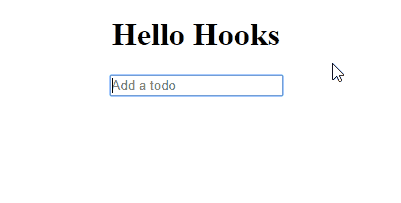Mấy tháng trước thiên hạ rần rần với React hook khi nó còn đang ở bản proposal (show hàng cho các anh lập trình viên, nếu thích thì họ phát triển tiếp), bây giờ khi React chính thức công bố trên trang chủ rồi, chúng ta cùng làm quen với React hook cũng ko có gì muộn.
State trong React
Khi khai báo một component trong React bằng class (stateful component), không dùng function để khai báo (stateless component), thì trong component đó chúng ta có state
class StatefulComponent extends React.Component {
constructor(props) {
super(props);
this.state = {
name: 'An Luu'
}
}
render() {
return (
<div>
Hello {this.state.name}
</div>
)
}
}
const StatelessComponent = ({ name }) => {
return (
<div>
Hello {name}
</div>
)
}
Vấn đề của hàm setState là nó chỉ có khi chúng ta khai báo component bằng class, nó là hàm async – nghĩa là nếu chúng ta gọi setState nhiều lần, component được render lại với số lần gọi setState.
Nguyên nhân chính đẻ ra cái hook chính là việc ko thể setState trong function component (ủa vậy tại sao đẻ ra khái niệm function component chi, stateless component chi?)
Sử dụng React Hook
Trước tiên muốn dùng React Hook, phải đảm bảo version React đang dùng thấp nhất là 16.8.0
Hàm quan trọng cần nhớ là useState
import React, {useState} from 'react';
Hàm useState nhận tham số initial state, sau đó sẽ trả về một mảng 2 phần tử, phần tử đầu tiên là state hiện tại, thứ 2 là hàm để update state (setState đó mà)
const [state, setState] = useState(false);
Sử dụng trên component thực tế đi nhỉ
import React, { useState } from 'react';
const Form = ({ addTodo }) => {
const [value, setValue] = useState("");
const handleSubmit = e => {
e.preventDefault();
if (!value) return;
addTodo(value);
setValue("");
};
return (
<form onSubmit={handleSubmit}>
<input
value={value}
type="text"
onChange={e => setValue(e.target.value)}
placeholder="Add a todo"
/>
</form>
);
};
const StatelessComponent = () => {
const [todos, setTodos] = useState([]);
const addTodo = text => {
const newTodos = [...todos, { text }];
setTodos(newTodos);
}
const deleteTodo = index => {
const newTodos = [..todos];
newTodos.splice(index, 1);
setTodos(newTodos);
}
return (
<div>
<Form addTodo={addTodo} />
<div>
{todos.map((todo, index) => (
<div key={index} onClick={() => deleteTodo(index)}>
<span>{text}</span>
</div>
))}
</div>
</div>
)
}

Xem thêm các việc làm React hấp dẫn trên TopDev
TopDev via Vuilaptrinh